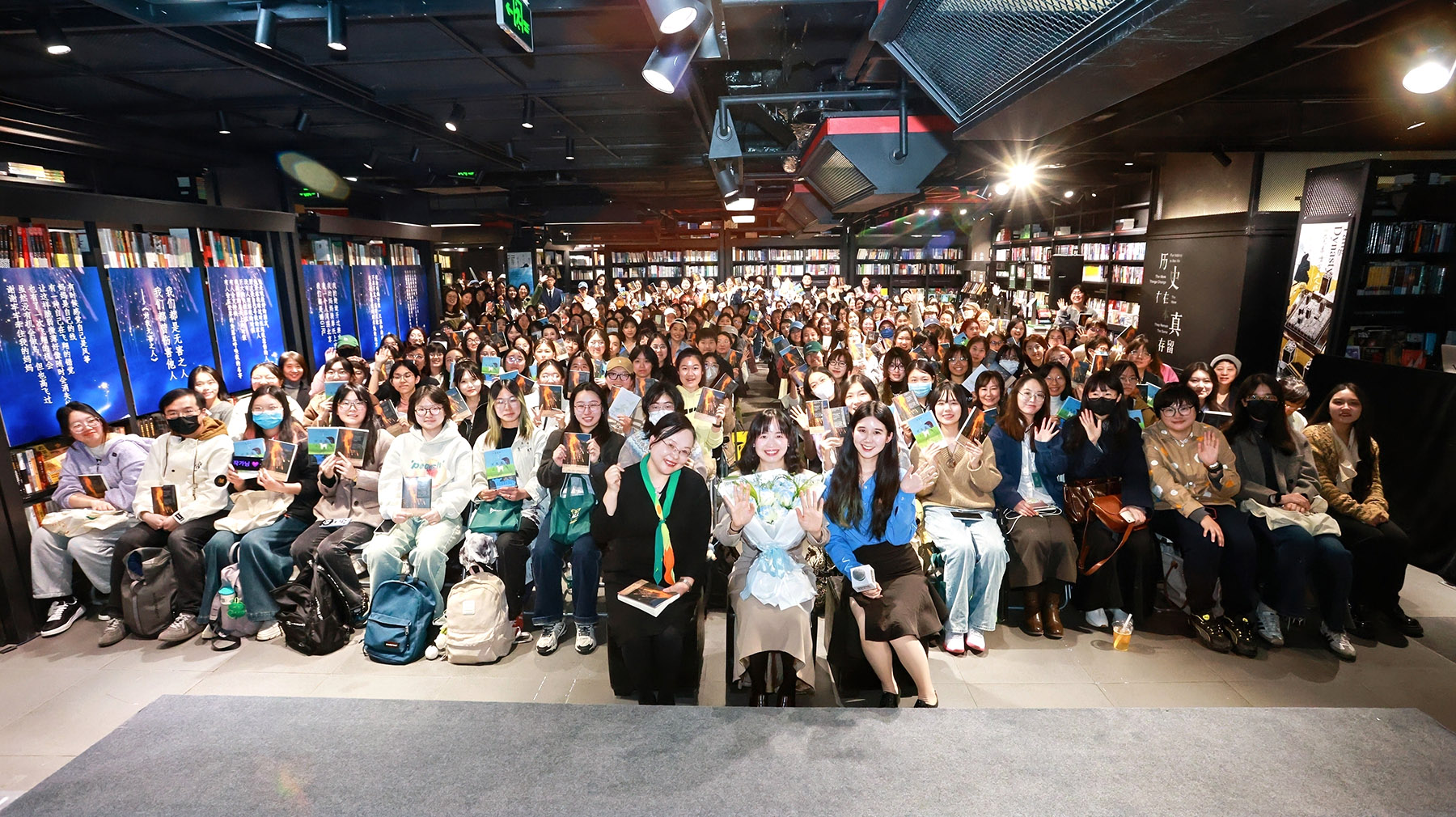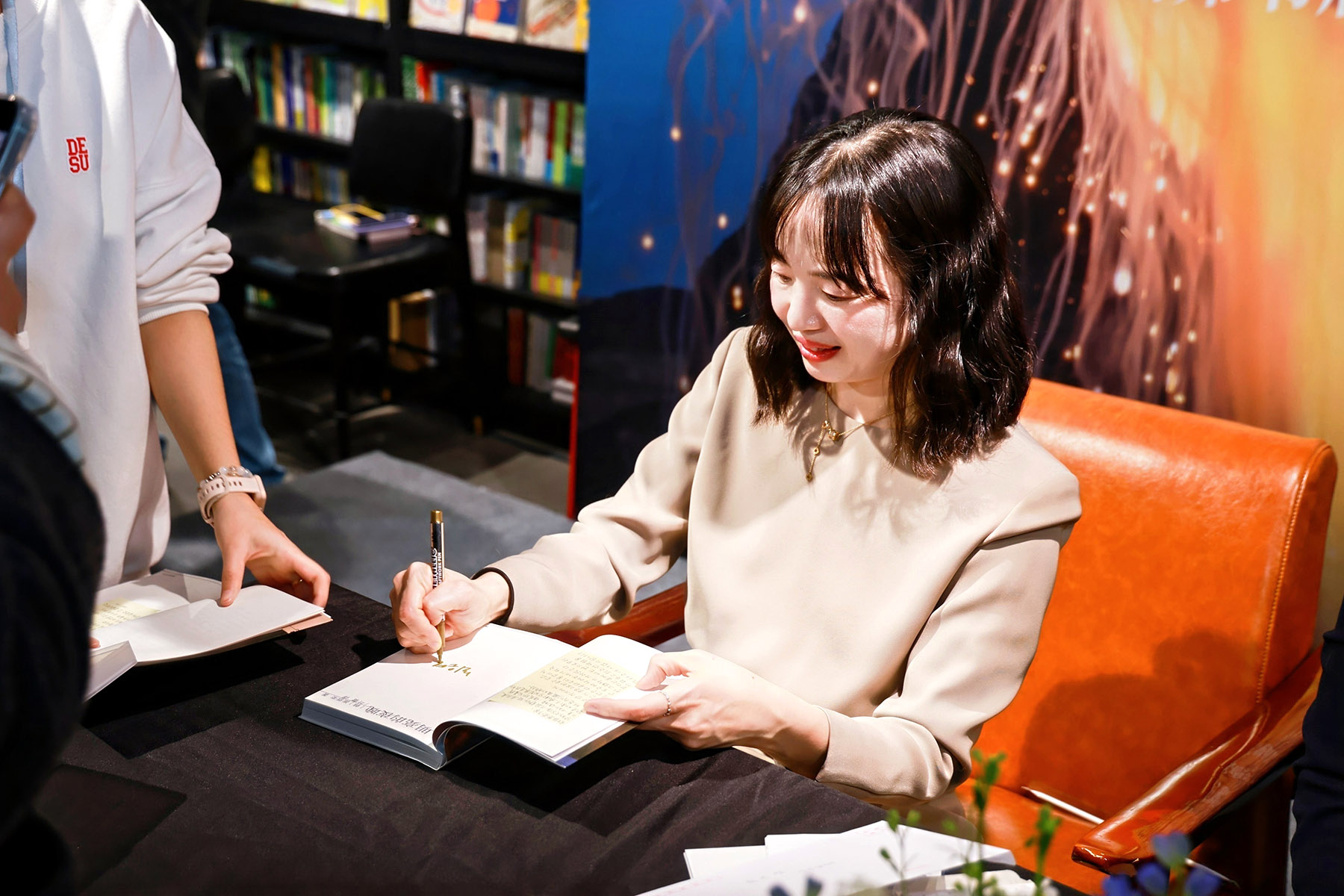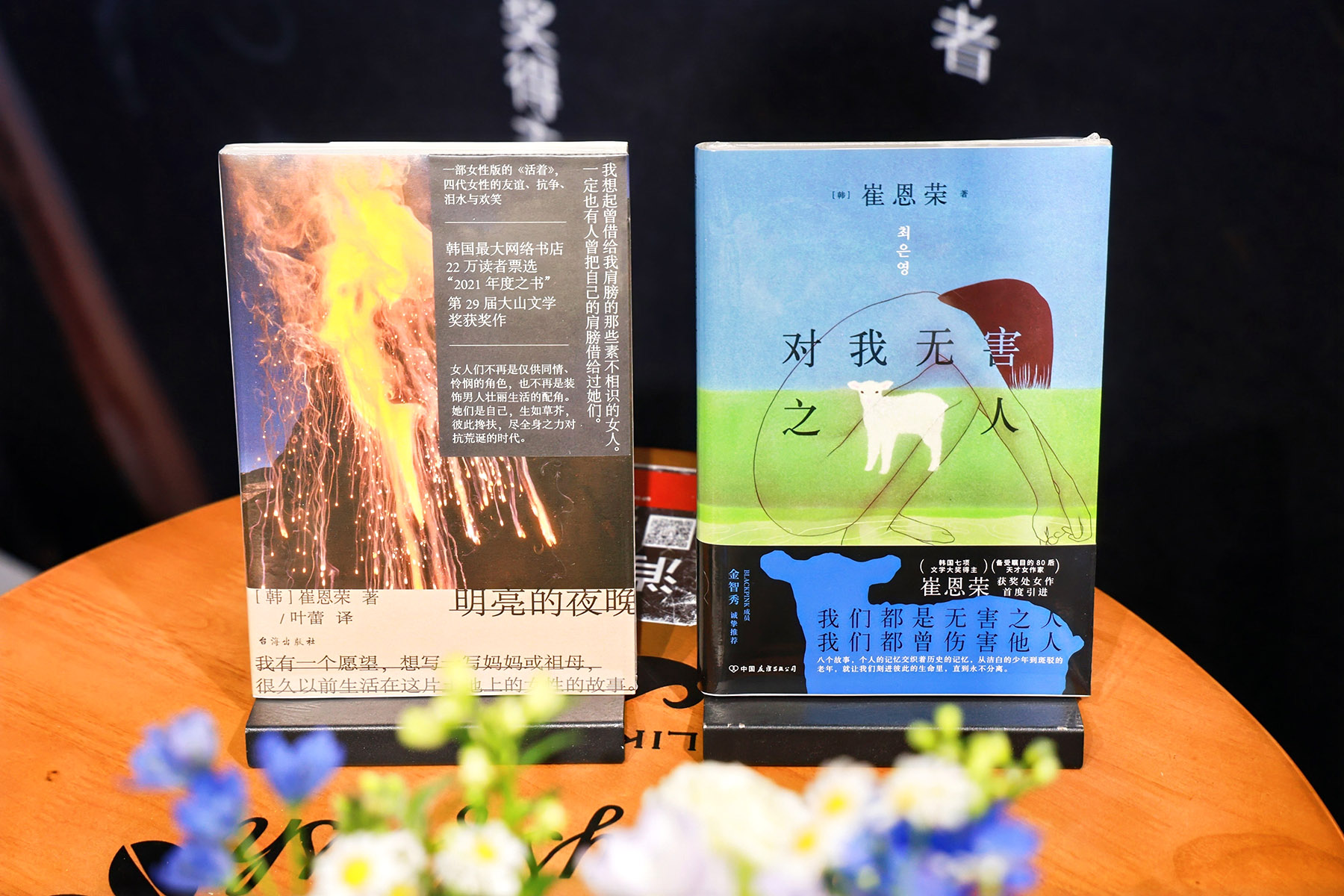South Korean writer's books find resonance with readers inside and outside her home country, Yang Yang reports.

When tickets for South Korean writer Choi Eun-young's book signing and meet-and-greet event in the Langyuan Vintage cultural and art zone in late March were released online, they immediately sold out.
In 2023, the Chinese translation of her novel Bright Night topped the foreign literature list on review platform Douban. With a rating of nine out of 10, it entered the top 10 list of the most popular feminist books of all time on the platform, alongside Italian writer Elena Ferrante's The Story of the Lost Child, French Nobel Prize laureate Annie Ernaux's A Woman's Story, and Canadian Writer Margaret Atwood's The Testaments.
Bright Night follows 32-year-old Ji-yeon as she moves to the quiet coastal city of Heeryong, seeking refuge from the unresolved chapters of her life. There, a chance encounter reunites her with her long-estranged grandmother after two decades of separation. Through fragmented memories and whispered family histories — stories of her grandmother's resilience and her mother's silent struggles — Ji-yeon begins to untangle the generational threads that have shaped her identity.
READ MORE: A writer true to his word
The novel weaves a four-generation saga of women, projecting their intertwined lives, quiet defiance, and emotional odysseys against the backdrop of South Korea's tumultuous modern history, as the country rose from the shadows of Japanese occupation through the fractures of rapid industrialization.
Among more than 22,000 comments posted by Chinese readers about Bright Night, many say that they deeply resonated with the female characters.
Zhang Li, professor of Chinese language and literature at Beijing Normal University, describes the book as "both warm and powerful".
"The writer doesn't just capture the emotional landscape of Korean women — she articulates what can not be cleared stated, giving form to the deeply felt but rarely voiced truths that resonate profoundly with us as Chinese women," she says.
Explaining why the book is so well-received in China, Choi says: "Regardless of cultural background or location, humans all share some universal emotions. Starting from birth, each person carries their own pain, even those that appear to lead relatively easy lives. Therefore, no matter what kind of story is being told, it will touch upon the pain in a reader's heart, which is what defines a good story.
"On the other hand, as someone who is part of the East Asian cultural circle, some of our emotions and values are influenced by Confucian culture. Therefore, I guess readers from the East Asian region may have a deeper understanding of my stories compared to those from other cultural background," she says.
So far, three of Choi's books have been published in the Chinese mainland, including a short story collection Someone Harmless to Me, and Bright Night, both of which were published by Beijing Xiron Culture Group. Another short story collection A Very Faint Light Though is going to be published later this year, also by Xiron.
Born in Gwangmyeong in Gyeonggido in 1984, Choi started writing fiction in senior middle school, but says she did not have the courage to be a professional writer until she was almost 30, when the desire to write finally overcame her fear of writing.
"Since I was young, I have often felt empty inside, but once I start writing, I feel calm and a real sense of being alive," she says.

Her novella Shoko's Smile started her writing career in 2013.
The story takes place during the era when Japanese culture was just beginning to spread to South Korea. A Japanese high school girl student named Shoko comes to South Korea and stays at a friend's house for a week, leading to incidents. Later, the two become pen pals. The theme of this novel revolves around the unstable period between adolescence and the early 20s, and the harsh reality of being unable to establish oneself in society in one's late 20s.
Choi then published a short story collection also titled Shoko's Smile: Stories.
In 2018, she published a second short story collection, Someone Harmless to Me, which won seven literary awards in South Korea. The eight short stories shine a light on people pushed to society's edges: the wife of an unjustly condemned prisoner, a student enduring domestic violence, families of shipwreck victims, and friends separated by war.
Quietly broken yet harmless, these people remain trapped in sorrow. Their hearts bear scars that cannot be erased or mended — wounds that shape their fragile humanity. Yet often, those who have harmed them are no different: ordinary people, who are just as vulnerable.
"Under what circumstances do people get hurt? In what kind of societal structures do they experience harm? How do different mindsets and personalities lead to conflict and pain? I have a strong interest in these questions. Describing the instantaneous changes in a person's inner world with delicate, sensitive, and accurate language is where my interest lies," the author says.
In 2017, Choi visited Cuba. One day, while she was sitting, lost in thought, the image of her maternal uncle leaving his sick mother for Kaesong swam before her eyes, leading to the writing of her debut full-length novel Bright Night, which was published in 2021.
Initially, she didn't intend to write a novel that spans four generations, but inspired by her own storytelling grandmother, she began the novel from the viewpoint of a grandmother, who shares tales about her own mother and life.
As she wrote the novel, Choi began to think that the grandmother character was probably telling her stories to someone, and came up with the idea of the listener being her granddaughter, Ji-yeong. The granddaughter then became the central character in the novel, alongside her mother, the daughter of the storytelling grandmother.

In many of Choi's short stories as well as her novel, the mother-daughter relationship stands out as one of the most frequent topics.
" (That is) because the relationship between myself and my mother is one of the issues that I have been wanting to resolve," she says, adding, "among all the relationships, the mother-daughter relationship is the most complex.
"It naturally became a topic in my writing because fiction seeks to portray the complexity and diversity of human beings."
Friendship between women is another important topic.
When she was young, Choi says she often heard sayings like, "Women don't understand true friendship", "Relationships between women are too cunning", "True friendship only exists between men", and "A woman's biggest enemy is another woman".
ALSO READ: Nobel Prize winner Han Kang's books fly off the shelves in South Korea
"However, as I truly experienced life, I found that this was not the case. Nobody wants to help women more than other women. This made me start to ponder why there are so many ideas in society disdainful of women," she says.
"As a novelist, we must authentically portray reality, so I hope to truthfully depict through novels that genuine friendship exists between women, as well as mutual love."
Many readers feel a sense of healing from the love and friendship between the female characters in the novel.
Commenting on Douban, Chinese reader "Qijiu" writes: "When I read similar books about women before, I would always cry because of the women's hardships, thinking about how difficult it is to be a woman. Although this book also talks about hardships, every time I cry, it is due to the love conveyed within it. This love transcends the book, as if healing the little rebellious me, the present me."
Contact the writer at yangyangs@chinadaily.com.cn


